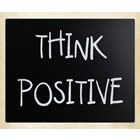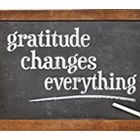Heal Within

Attitude
Have you ever heard that a positive attitude is critical to your healing? Well, it is. What you think and how you see yourself healing is a very important step in your recovery. Scientific discoveries have come out this year to confirm that an optimistic attitude can be tied to health.
“We know why optimists do better than pessimists,” says Scheier. “Optimists are not simply being Pollyannas; they’re problem solvers who try to improve the situation. And if it can’t be altered, they’re also more likely than pessimists to accept that reality and move on. Physically, they’re more likely to engage in behaviors that help protect against disease and promote recovery from illness. They’re less likely to smoke, drink, and have poor diets, and more likely to exercise, sleep well, and adhere to rehab programs. Pessimists, on the other hand, tend to deny, avoid, and distort the problems they confront and dwell on their negative feelings. It’s easy to see now why pessimists don’t do so well compared to optimists.”
— Read more by Psychologist Michael F. Scheier
When I was sick and recovering in intensive care, I didn’t know if I had the will to live anymore. It didn’t make sense for me to just survive. You have to have the will and intention to want to live and to do so with a passion. To love God, give thanks for each day and to embrace life.
Implementing positive attitude, gratitude & meditation allows you to experience the rewards life has to offer. You are so wonderfully blessed.

Gratitude
Gratitude Overview led by Danielle Mika Nagel
Gratitude is so critical to achieving a positive attitude when we don’t feel positive. Giving thanks and being grateful are both key to being positive. Deepak Chopra, as co-founder of the Chopra Center, offers a 21-Day Meditation Challenge. They have offered many insights into the benefits of gratitude and being grateful. Read more… More recently, he has joined with Oprah Winfrey for a series of meditations that are well worth exploring.
Be thankful. Giving thanks each day has enormous health benefits and adds to your overall abundance. The Universal Law of Attraction says “We will attract into our lives the things we think about and focus on.” Wouldn’t we want more of what we are thankful for? Thus allowing for greater abundance to be made manifest in your life.
“We can only be said to be alive in those moments when our hearts are conscious of our treasures.”
Maintaining a grateful attitude positively affects our physical, emotional and mental well-being. Studies have shown that people who practice gratitude are more optimistic than those who do not. Optimism has enormous health benefits. It improves our immune function, allows for better sleep, greater productivity and improved relationships.
No matter what life brings us, being grateful reduces negativity and can transform our experiences. Naturally, we are bound to face challenges in our life. That is part of living on the physical plane. It's making large and small choices and following leads.
Being grateful for our situation, even if we don’t like everything about it, allows us to be thankful for the opportunity to learn something new. One of the fastest ways to improve our mood or outlook is to count your blessings.
- “Thank you for being in my life”
- “Thank you for being who you are”
- “Thank you for your help”
Let’s remember to give thanks to others every day.
It brings such peace and contentment to be grateful for what we have: the warmth of the sun, the sounds and beauty of nature, the love of family and friends, abundance, health, life itself. There are so many things for which we can be grateful.
Let us commit to having a prayer of gratitude in our heart first thing in the morning and lastly as we fall asleep at night.
Reviewing a list of things we are grateful for before bedtime has shown to induce a more restful sleep. Spending more time in meditation will reveal gifts we may have left off our list. In the silence of meditation, we are in touch with our heart center, our soul - in a state of expanded awareness.
Deepak Chopra writes: When this door to awareness is opened, you experience love in every aspect of your life. At a deeper level, love bonds you to the rhythm of the universe.
Let us reconnect with the rhythm of the unbounded, unlimited universe. Commit to living each day in gratitude and enjoy the abundance that follows. Allow this message to settle into the deep recesses of your consciousness.

Meditation
Gratitude Journal & Breathing Exercise by Dr. Andrew Weil
Gratitude is so critical to achieving a positive attitude when we don’t feel positive. Giving thanks and being grateful are both key to being positive. Deepak Chopra, as co-founder of the Chopra Center, offers a 21-Day Meditation Challenge. They have offered many insights into the benefits of gratitude and being grateful. More recently, he has joined with Oprah Winfrey for a series of meditations that are well worth exploring.
Here is a good exercise to reset your mood. A positive attitude is key. If you are depressed, getting beyond that negative mood is the most important, first step to take today. Scientific research supports the power of gratitude in boosting your mood. Two aspects are involved here. The first is feeling grateful and the other is expressing gratitude. There's a little exercise from the Field of Positive Psychology that Dr. Weil recommends to shift your mood.
Please get a notebook that you can dedicate to this - it will be your Gratitude Journal. During the day, make mental notes of those things that you are grateful for and then jot them down at night before bed in your journal. Doing this for one week has been shown to boost your attitude for up to six months. It's so easy to do this one simple exercise. This has been proven to have a scientifically valid positive effect on your mood.
A second recommendation is to do a breathing exercise. Dr. Weil calls it the Life Balancer Breathing Exercise (4-7-8): This exercise changes the balance in your involuntary nervous system, slows the heart rate, lowers blood pressure and improves digestion.
- Breath in for a count of 4;
- Hold your breath for a count of 7; and then
- Exhale for a count of 8, breathing out by pushing out the air with a little noise. This will help to empty your lungs completely which you need to do to make this an effective exercise.
- Do this exercise for 4 breath cycles. Takes less than a total of 20 seconds to complete.
- Now go have a great day!